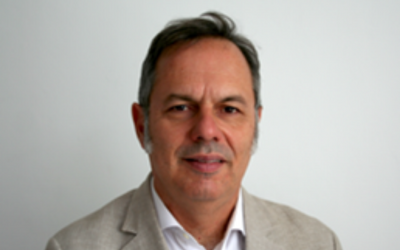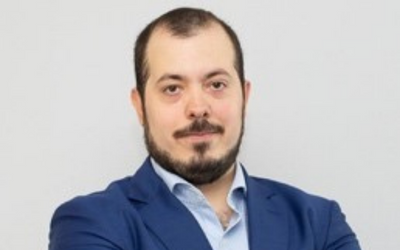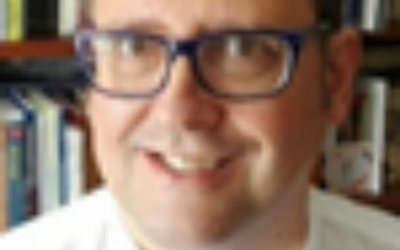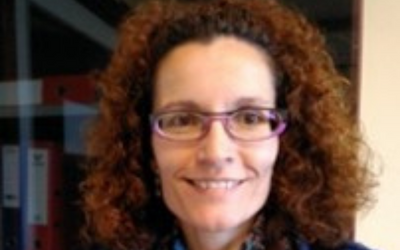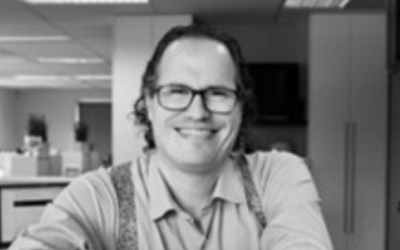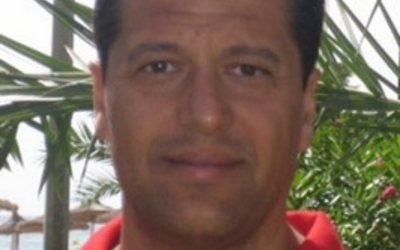You are here
- Home
- External Events and Publications
- Biennial APS Conference
- APS Conference 2023
- Conference programme
- ONCE Foundation Channel at UNED - an Open Training Resource in Design for All
ONCE Foundation Channel at UNED - an Open Training Resource in Design for All
Cecile Finat, Antonio Juano, Elisa Molanes-López, Jorge Pérez-Martín, Miguel Ángel Artaso, Emilio Letón, and Alejandro Rodriguez-Ascaso, Universidad Nacional de Educación a Distancia (UNED), Spain
Email: arascaso@dia.uned.es
Presentation
Abstract
The objective of the ONCE Foundation Channel at UNED is to provide training on Design for All and Universal Accessibility (Barnes, 2011). The Channel is an initiative of the Royal Board on Disability, with Fundación ONCE and UNED. It educates on the needs of people with disabilities, their rights, as well as the strategies and techniques to remove existing accessibility barriers… in fields such as information technology, education, communication, architecture and commerce.
Training is provided through the UNED MOOC Open edX platform (Gil-Jaurena, 2015), and through electronic books. Learning materials are developed working alongside other organizations with relevant expertise, including professionals with disabilities: faculty experts, computer scientists, architects, lawyers, occupational therapists, standardization experts, human rights activists, etc. The Channel guides authors so that materials (videos, text, quizzes and peer assessment activities) comply with instructional and accessibility standards (Letón & Rodriguez-Ascaso, 2021). Teaching, tutorial and technical support is provided online.
Since 2016, more than 20,000 students have enrolled in its courses, mostly from Spain and Latin America. 22% of them have completed a course, 12% have requested a certificate. The Channel develops a Quality plan, including research activities to understand the barriers students with disabilities face in open education and how to overcome them, as well as the accessibility competences our students acquire.
The courses have a significant impact on groups of people who think this training is relevant for their professional progress (64%), and four of the courses were selected by the State Foundation for Employment Training (FUNDAE) to form part of its program of free training in digital skills. There is also an impact on groups that have traditionally found themselves with limitations in learning, according to UN Sustainable Development Goal 4, e.g., students with accessibility preferences or needs, and students who come from areas where the UNDP report identifies deficiencies in education (United Nations, 2015).
References
Barnes, C. (2011). Understanding disability and the importance of Design for All. Journal of Accessibility and Design for All, 2011-1(1):55-80. Available online at: http://riberdis.cedid.es/xmlui/bitstream/handle/11181/3552/understanding_disability_and_the_importance_of_design_for_all.pdf?sequence=1
Gil-Jaurena, I. (2015). MOOCs in Spain: Preliminary lessons from UNED MOOCs experience. MOOCs and educational challenges around Asia and Europe. KNOU Press 191-204. Available online at: https://www.academia.edu/download/47702693/MOOCs_and_Educational_Challenges_around_Asia_and_Europe_FINAL.pdf#page=198
Letón Molina, E., & Rodríguez Ascaso, A. (2021). Guía para crear los contenidos de tu curso digital. Editorial Fundación ONCE. Available online at: http://e-spacio.uned.es/fez/eserv/bibliuned:92-Libros-Arodriguez/Guia_Practica_Crear_tu_Curso_Digital_vf.pdf
United Nations. (2015). Sustainable development goals. UN. Available online at: https://www.un.org/sustainabledevelopment/
Cecile Finat
Institutional Relations Manager at ONCE Channel Foundation, Universidad Nacional de Educación a Distancia (UNED) (Spanish National Distance Learning University)
Cecile Finat received a degree in Economics and Business Administration from the Universidad Complutense de Madrid, Spain, in 1992. She is in charge of institutional relations at ONCE Channel Foundation at UNED. Her research interests include the participation of disabled users in ICT research projects. She has taken part in several research projects and has published in these areas. He has been member of several standardisation committees at UNE (the Spanish Standard Development Organization).
Alejandro Rodriguez Arascaso
Lecturer and researcher (Artificial Intelligence), Universidad Nacional de Educación a Distancia (UNED) (Spanish National Distance Learning University)
Alejandro Rodriguez-Ascaso has a PhD. in Telecommunications Engineering from the Universidad Politécnica de Madrid (UPM). He is a lecturer and researcher at the Department of Artificial Intelligence at the Universidad Nacional de Educación a Distancia (UNED, Spanish National Distance Learning University). His main teaching and research interests are in the area of accessible human-computer interaction, adaptive and open learning resources, telecare and ICT mediated support for personal autonomy. He is the principal investigator at ONCE Foundation Channel at UNED. Furthermore, he is active in national and international standardization activities in the field of digital accessibility and user experience at UNE, ETSI and ISO.
Jorge Pérez Martín
Assistant Professor in the Department of Artificial Intelligence: Universidad Nacional de Educación a Distancia (UNED) (Spanish National Distance Learning University)
Jorge Pérez Martín was born in Madrid in 1986. He graduated in IT Business Management from the Complutense University of Madrid in 2014. One year later he completed his Master's Degree in Advanced Artificial Intelligence from the Universidad Nacional de Educación a Distancia (UNED). From 2015 to 2019 he completed his Ph.D studies in Intelligent Systems thanks to a predoctoral grant (FPU14/02577) from the Spanish Ministry of Education. Since October 2020 he has been an Assistant Professor in the Department of Artificial Intelligence at the UNED.
He is a member of the ``Research Center for Intelligent Decision-Support Systems'' and ``miniXmodular'', a teaching innovation group. He has participated in several teaching innovation projects related to accessible interactive materials. Since 2016 he has participated in the editing and quality analysis of MOOC courses of the ONCE Foundation Channel at UNED through various transfer contracts.
Antonio Juano
Assistant Professor in the Algebra area, University of Zaragoza
Antonio Juano has got a MSc degree in Mathematics and MSc degree in Computer Science Engineering from the Universidad Nacional de Educación a Distancia (UNED), Madrid, Spain. He develops his professional activity in the Electronic Administration Unit of the Zaragoza City Council. Currently, he combines this activity with that of assistant professor at the University of Zaragoza, attached to the Algebra Area in the Department of Mathematics as well as that of tutor professor at the UNED Associated Centre in Calatayud.
Among his areas of interest, we can highlight Cryptography, Cybersecurity and Blockchain, Didactics and teaching practice together with Accessibility and Design for All. Thus, he participates in the CiberGID and miniXmodular Teaching Innovation Groups. He has collaborated with the ONCE Foundation Channel at UNED since 2018.
Elisa M. Molanes-López
Lecturer and Researcher in Biostatistics, Universidad Complutense de Madrid
Elisa M. Molanes-López has a M.S. degree in Mathematics from the Universidade de Santiago de Compostela and a Ph.D. degree in Statistics from the Universidade da Coruña. She is a lecturer and researcher at the Biostatistics Section of the Department of Statistics and Operations Research at Universidad Complutense de Madrid. Her research interests include nonparametric statistics, survival analysis, ROC curves, copula functions, and web technologies. Since 2016, she is a member of the UNED Teaching Innovation Group “miniXmodular: a proposal for the realization of modular digital teaching material in mini format”, and she participates in the editing of MOOC courses for the Fundación ONCE Channel at UNED.
Miguel Ángel Artaso
IT Officer Data Science Engineer, European Commission
Miguel Ángel Artaso is an IT Officer Data Science Engineer at the European Commission, where he assists the policy officers in doing their job more efficient by applying artificial intelligence techniques. He holds a master’s degree in artificial intelligence from the UNED and is a PhD candidate in the same university, being the topic of his dissertation the Quality of Life of cochlear implant users. He is as well a member of the Spanish Interuniversitary teaching innovation group miniXmodular.
Emilio Letón
Lecturer (Artificial Intelligence), Universidad Nacional de Educación a Distancia (UNED) (Spanish National Distance Learning University)
Emilio Letón was born in Madrid, in 1966. He received the Ph.D. degree in Mathematics from the Universidad Complutense de Madrid (UCM), in 2002. He is currently a Lecturer with the Department of Artificial Intelligence of the Universidad Nacional de Educación a Distancia (UNED), Spain, which he joined in 2009. Previously, he was a Lecturer with the Department of Statistics in the Universidad Carlos III de Madrid (UC3M), for a period of five years. He has also worked for 15 years with Departments of Planning and Statistics in the banking sector and the pharmaceutical industry. His research interests include Survival Analysis, Nonparametric Tests, PLS, Meta-Analysis, Biostatistics, B-Learning and AI. He is co-author of 14 articles reflected in his ORCID (https://orcid.org/0000-0001-6908-9590). He has participated in 34 teaching innovation projects in the last 15 years (coordinating 12 of them) collaborating with different universities: UNED, UC3M, UCM y UPM. He makes his transfer from the miniXmodular group (www.minixmodular.ia.uned.es) of which he has been coordinator since its creation in 2016, from the Fundación ONCE Channel in which he has collaborated since its creation in 2016 and from the UNESCO Chair in Education to Distance (CUED) which he joined in 2022 as a member of the academic council. He has received 1 award for excellence in scientific publications (UC3M), 5 awards for teaching excellence (1 at UC3M, 3 at UNED and 1 at the OCW Consortium) and 1 transfer award (UNED-Santander). In @emilioleton, his professional tweets and his personal website (www.ia.uned.es/~eleton) with extended information can be found.

